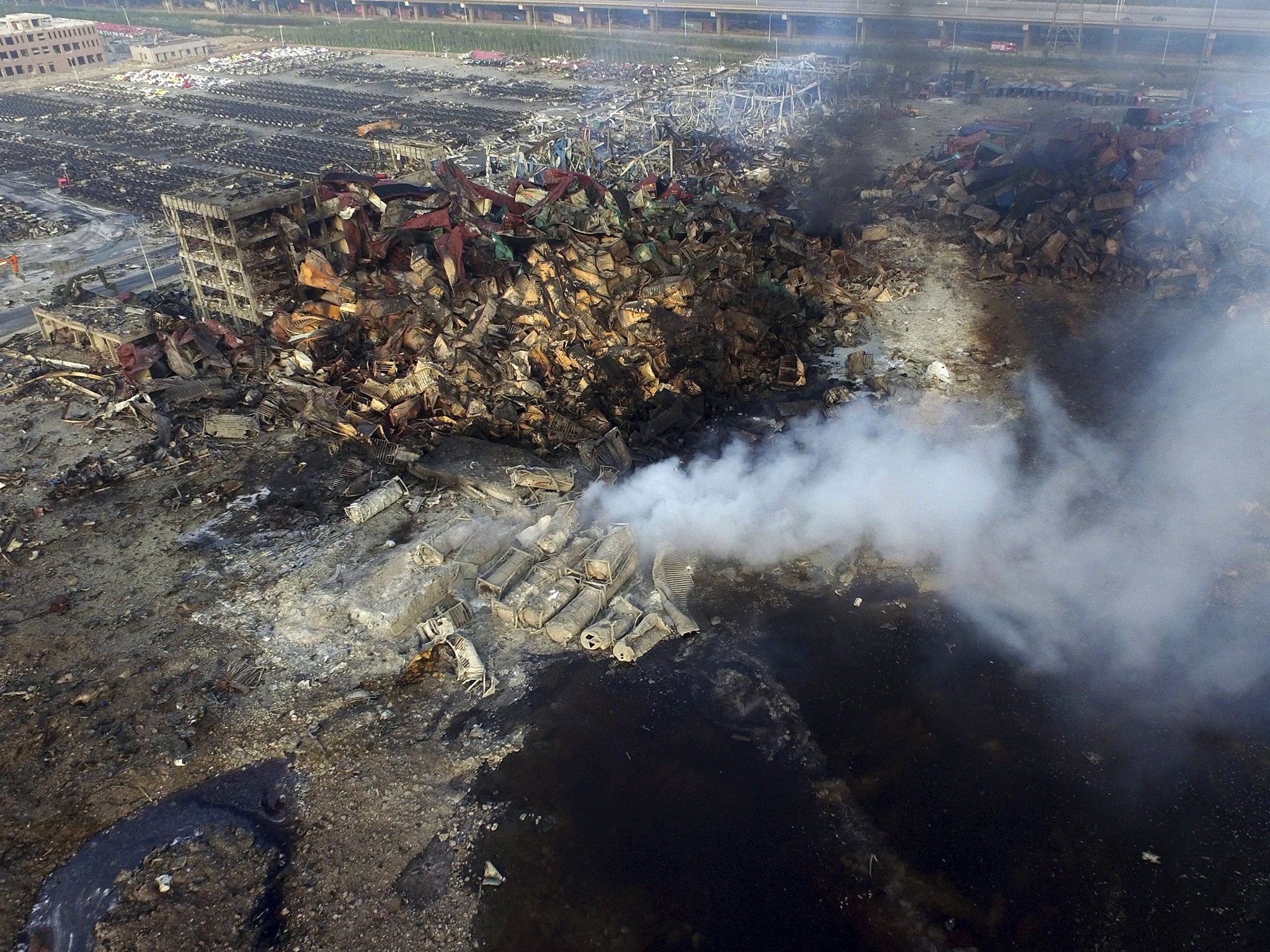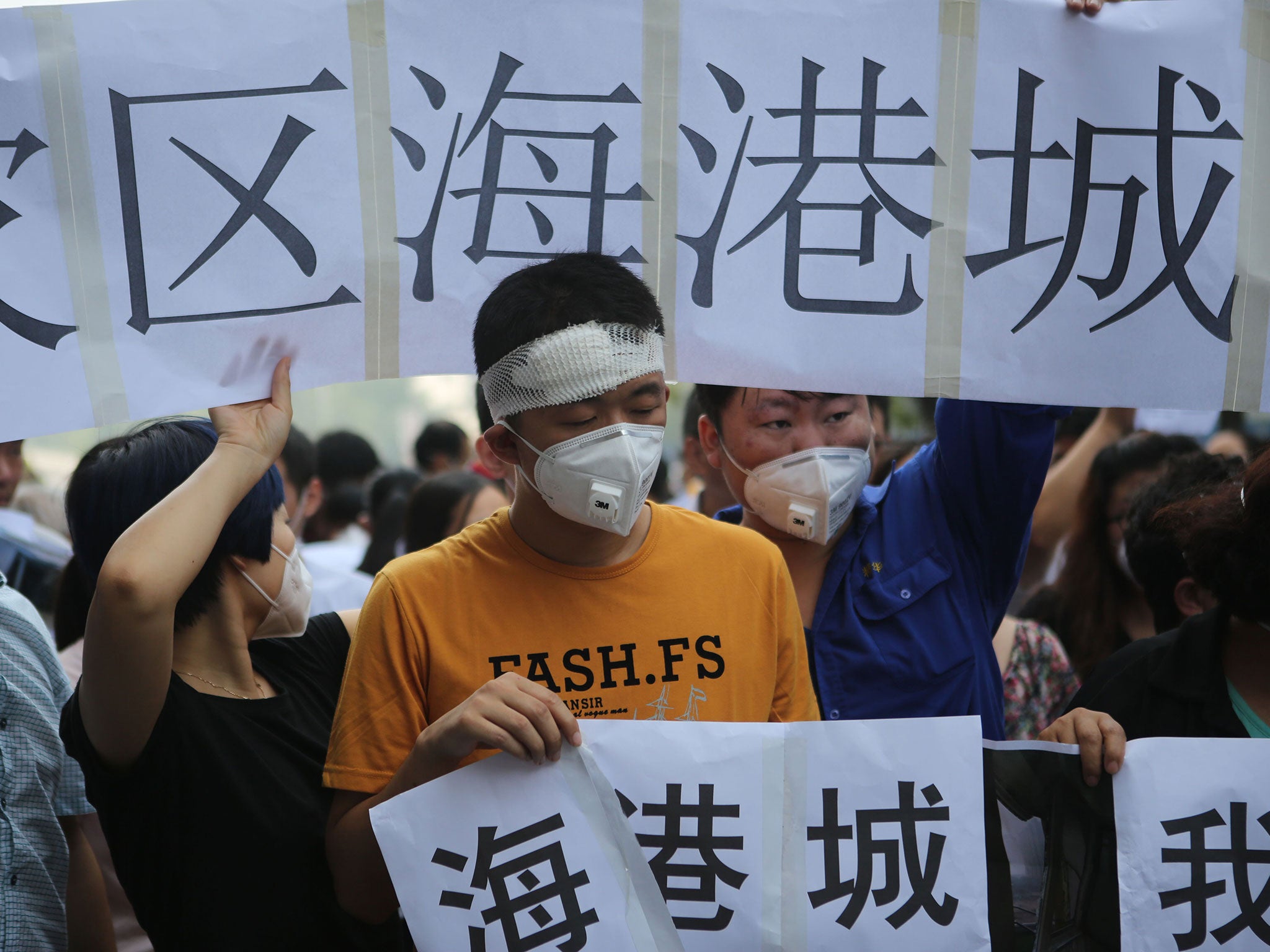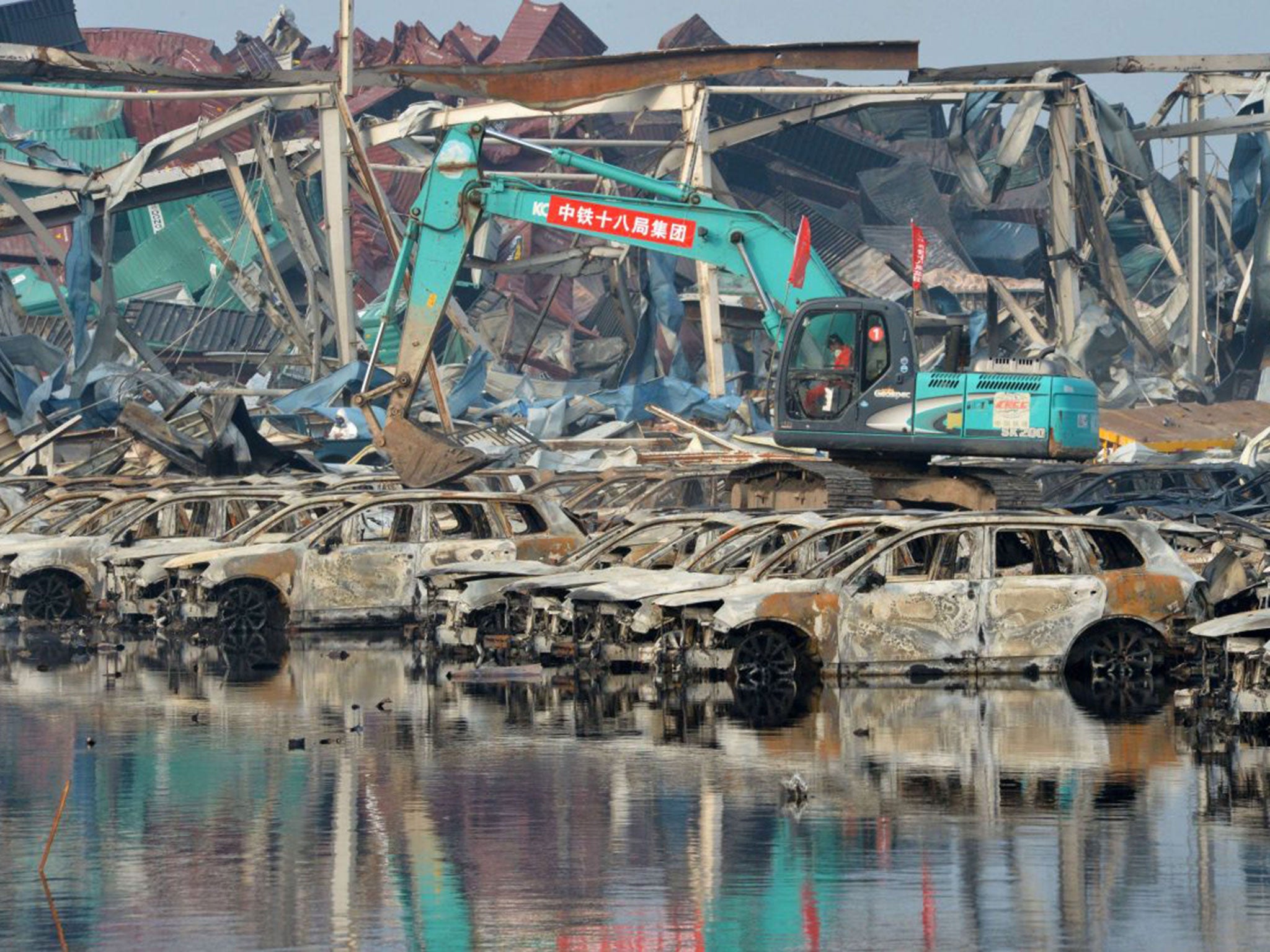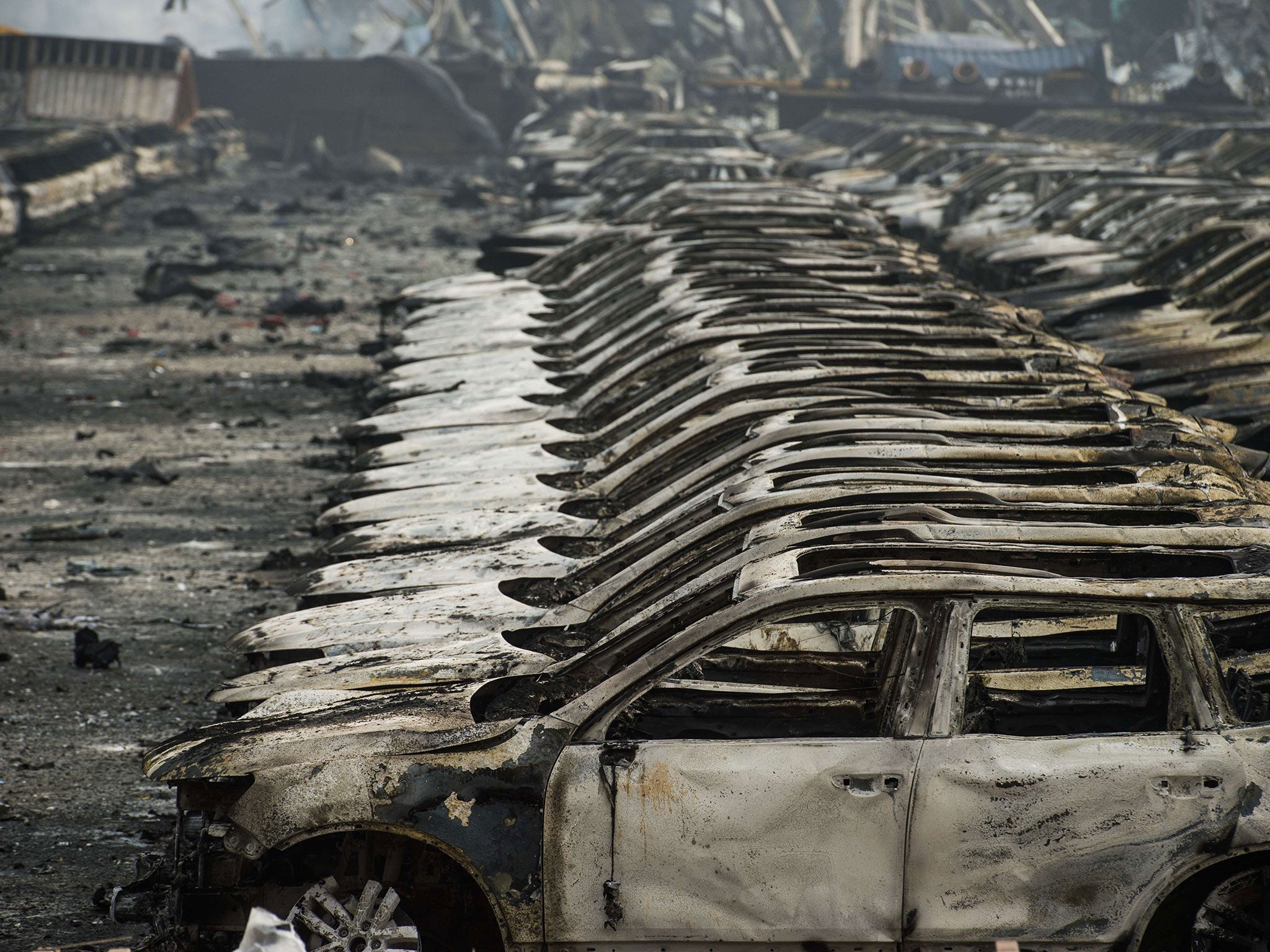China's flawed corruption crusade: How the Tianjin disaster was the latest consequence of a system that places profit before public safety
Last week’s disaster in Tianjin was the latest consequence of a system that places personal profit before public safety. Ben Chu exposes Xi Jinping’s flawed corruption crusade

Your support helps us to tell the story
From reproductive rights to climate change to Big Tech, The Independent is on the ground when the story is developing. Whether it's investigating the financials of Elon Musk's pro-Trump PAC or producing our latest documentary, 'The A Word', which shines a light on the American women fighting for reproductive rights, we know how important it is to parse out the facts from the messaging.
At such a critical moment in US history, we need reporters on the ground. Your donation allows us to keep sending journalists to speak to both sides of the story.
The Independent is trusted by Americans across the entire political spectrum. And unlike many other quality news outlets, we choose not to lock Americans out of our reporting and analysis with paywalls. We believe quality journalism should be available to everyone, paid for by those who can afford it.
Your support makes all the difference.Balzac suggested that behind every great fortune lies a great crime. In China today it seems that behind every industrial accident lies a reeking morass of corruption.
This week Chinese state media reported that the son of a former local police chief was secretly a joint owner of the Tianjin warehouse that went up in a devastating fireball last week, killing 114 people, injuring 674 and damaging some 17,000 homes.
According to the official Xinhua news agency, this son used his official connections to obtain licences for the warehouse, even though it flagrantly breached regulations prohibiting the storage of hazardous chemicals (sodium cyanide in this case) near residential areas.
It’s a wearily familiar cycle. Whenever there’s a high-profile tragedy in China, tales of official corruption and graft tend to ooze out from under the rubble. In 2008, just before China was due to host the Olympic Games, a massive earthquake struck the western Sichuan region. Many rural school buildings collapsed, crushing hundreds of children to death. It emerged that many of the schools had been built with substandard materials. Local officials had apparently cut costs when they commissioned the buildings, pocketing the saving from the public budget for themselves.

In 2011 two high-speed trains collided in the suburbs of the city of Wenzhou, killing 40 people and dealing a humiliating blow to the image of China’s transport infrastructure. The railways minister, Liu Zhijun, who had pushed through the massive expansion of China’s high-speed network, was already being prosecuted for corruption. After the crash a tidal wave of fresh details of Liu’s venality broke, including the allegations that he demanded a 4 per cent commission on railway construction deals and used his wealth to keep no fewer than 18 mistresses.
The Sichuan and Tianjin disasters illustrate how such corruption can turn out to be lethal. But the bigger point is that incidents like the Tianjin explosion pull back the curtain and reveal how China really functions.
Corruption is endemic. Officials the length and breadth of the country have used their position to extort money for personal profit. Corruption is very much a family business in China. Those in a position to steal often use family members to invest the proceeds on their behalf. And family members, in turn, often use their official connections to do further lucrative business deals.
The economy’s structure makes corruption easy. Every property and land development deal in recent years has presented an opportunity to skim. And lots of these deals have taken place because state-owned banks have been told to lend hundreds of billions of dollars to developers to keep the country’s growth rate up. The benchmark by which officials have been judged is GDP growth – not the quality of their investments. And certainly not the rigour of their accounting.

The venality goes right to the top. The family of Bo Xilai – who until he was purged in 2012 was the Communist Party boss of Chongqing, one of China’s biggest cities – is alleged to have amassed a fortune worth $160m (about £100m). And that’s a relatively modest amount. Research by The New York Times in 2012 showed that the extended family of Wen Jiabao, who was then Prime Minister, had accumulated a secret $2.7bn fortune. “A pernicious kleptocracy has taken root in China,” says Minxin Pei, an expert on governance in the country.
But aren’t things changing? President Xi Jinping, who took control in 2012, has cracked down on corruption. And that’s been noticed by Western exporters to China of Swiss watches and expensive spirits, who have seen demand for their products (the typical currency of bribes in China) slump alarmingly in recent years.
Yet the drive seems to be as much about consolidating Mr Xi’s political power as it is about modernising the Chinese economy and curbing the economic and social evils of endemic graft.

The purge of Bo Xilai does show that Mr Xi is willing to take down what he calls high-level “tigers” rather than just petty provincial “flies”. That is certainly something new in China. It was remarkable to see Zhou Yongkang, the Communist Party’s former security chief, sentenced to life in jail in June. Until 2012 he was one of China’s most influential men, sitting on the all-powerful politburo. But often these tigers happen to be political threats to Mr Xi. The charismatic Bo was easily the President’s biggest rival for the top Politburo job. And Zhou was a patron of Bo.
This political tinge to the crackdown compounds another problem. It is impossible to know whether the family wealth figures outlined in the state-owned press are accurate, or exaggerated to destroy the reputation of the accused. Some figures indicating corruption are certainly not publicised in China. The research by the Bloomberg news agency in 2012 suggesting that Mr Xi’s own extended family controls a substantial property empire, for instance, has not been aired in the mainland. Indeed, Bloomberg was blocked in China in the wake of the report.
The GlaxoSmithKline case provides another cautionary tale. The British-based pharmaceutical giant was prosecuted in China in 2013 for bribing doctors and officials. Glaxo has admitted guilt. But around the same time Peter Humphrey, a British private investigator hired by the company to investigate the source of an attempt to blackmail one of its executives, was arrested and jailed in a highly dubious prosecution.
It seems the source of the blackmail attempt (on whom Mr Humphrey was closing in) may have been a disgruntled former employee with powerful family connections. In the end the affair seemed to have been less about tackling Western corporate corruption in China and more about protecting vested interests.
A selective and opaque anti-graft drive is undoubtedly scary for the official kleptocrats of China – and many ordinary Chinese who have suffered their depredations will cheer that. But without granting true independence to China’s legal system, and releasing the shackles of state censorship from the country’s media, Mr Xi’s corruption crusade is unlikely to restore much public trust.
Ben Chu is the author of ‘Chinese Whispers: Why Everything You’ve Heard About China is Wrong’
Join our commenting forum
Join thought-provoking conversations, follow other Independent readers and see their replies
Comments